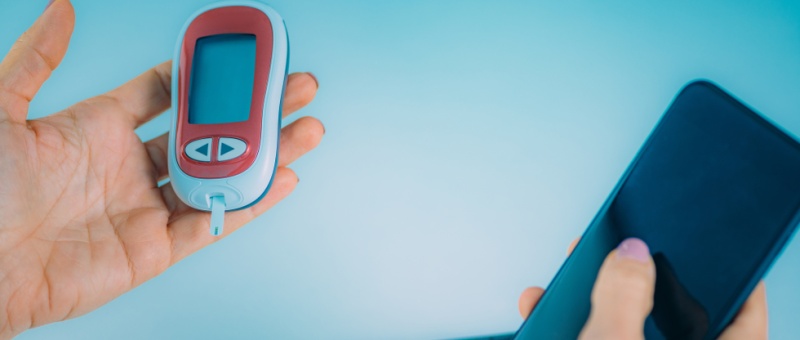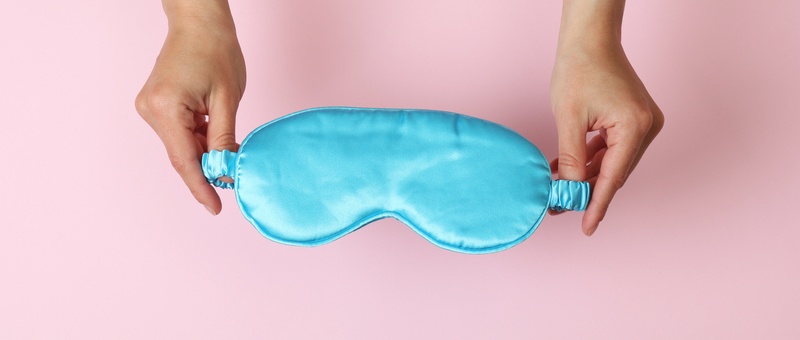
Can apps really help with diabetes management?
Peer reviewed by Dr Sarah Jarvis MBE, FRCGPLast updated by Lydia SmithLast updated 30 Mar 2021
Meets Patient’s editorial guidelines
- DownloadDownload
- Share
- Language
- Discussion
Technology often plays a big part in how we manage our health. We use fitness trackers to log how much exercise we do. Calorie counters help us keep on top of our snacking habits - and we even use apps to help support our mental well-being. Tech can also support us when managing more specific health conditions like diabetes. But how do these apps work - and can they really help?
Sign up for our free 10-week Diabetes course!
Each week, we'll explore a different topic to help you better understand and manage your diabetes, including everyday living and medicines, to mental wellbeing, the latest in diabetes tech, and nutrition.
By subscribing you accept our Privacy Policy. You can unsubscribe at any time. We never sell your data.
In this article:
"For many people living with all types of diabetes, apps can be a huge help in supporting their self-management, helping with carbohydrate counting, blood glucose tracking and diabetes education," says Dan Howarth, head of care at Diabetes UK.
"Several apps allow people with diabetes to automatically share information with their healthcare teams, which has been particularly useful during the pandemic. There are also many apps being used by people at risk of developing type 2 diabetes, to support their weight loss."
Why apps can help with diabetes management
Diabetes is a condition which causes a person's blood sugar level to become too high. There are two different types. In type 1 diabetes, the body's immune system attacks and destroys the cells that produce insulin. Therefore, the body is unable to produce enough insulin to adequately regulate blood glucose levels. People with type 1 diabetes must take insulin daily and monitor their blood sugars to ensure appropriate dosing.
In type 2 diabetes, the body can no longer respond effectively enough to its own insulin to prevent blood glucose levels from going too high. However, unlike type 1 diabetes, you can take action to get your body to respond better to insulin. Type 2 diabetes is complex and management can vary: while it always includes lifestyle changes, drug options include tablets, injectable therapies and insulin.
It can be hard to keep on top of diabetes management when you're busy, but apps can help with everything from medication and GP appointments to diet and exercise. "Diabetes is a relentless condition, and when combined with the stresses of everyday life, for many, managing their diabetes can easily become a second priority," says Howarth.
"There is so much to remember when trying to manage diabetes, so it's understandable that things may sometimes get missed. The important thing is to discuss with your healthcare team how to overcome ongoing concerns and find the routine that works for you."
Keeping track of diet and exercise
Back to contentsThere are a huge number of different apps to help track your diet and log your exercise, which can seem overwhelming. However, using tech to monitor your progress can be motivating when things seem tough.
The Klinio app is for people with diabetes and diabetes-related issues such as high blood sugar, excess weight and high cholesterol. With over 150,000 members, it provides personalised diabetes management and weight loss advice, including plans created by nutritionists to help you create and maintain a healthy diet. It is suitable for people with type 1 or type 2 diabetes, as well as pre-diabetes and less common types of diabetes such as latent autoimmune diabetes of adults (LADA).
The Klinio app helps you to transition to a moderate-carb diet with a personalised meal plan (adapted for you over time) that covers your calorie and carb/sugar intake as well as your macronutrient composition. It also allows you to log your blood glucose and HbA1c levels, weight and medications; to track your progress; offers 5- to 15-minute exercise workouts to build up your physical activity; and includes educational videos via the Klinio Academy.
The Low Carb Program, which is free if you are given an access code by your GP or nurse, is a platform available in the UK that helps you make lifestyle changes that can improve your health. You can personalise the information you receive. The app covers sleep, stress, mental health, blood glucose testing, cholesterol and stopping smoking, as well as recipes and meal plans for weight loss.
Changing Health is another app for people aged over 18 who have type 2 diabetes, which you can access following a referral from your GP. It helps you manage your physical activity, diet and weight.
Continue reading below
Managing insulin, medication and blood glucose
Back to contentsWith so much going on in our lives, it can be easy to forget to take medications or attend appointments. However, it's important to take your medications, injections or treatments when necessary to avoid complications.
If insulin injections or medications are missed, complications can include hypoglycaemia - blood sugar levels which are too low - and ketoacidosis - a serious complication that occurs when your body produces high levels of blood acids called ketones. Longer-term complications include heart disease, stroke, kidney disease and eye problems, which can potentially lead to loss of vision.
The thought of injecting each day can be daunting, but once you get the hang of it, it becomes a manageable part of life. Apps can make managing insulin easier by allowing you to log when you have taken your medication, set reminders and check your blood glucose.
You can track your progress and activity, access workouts, find meal plans and create shopping lists to help you stay on track with your diet.
The Mumoactive app is one option for tracking type 1 diabetes. It allows you to add your diabetes values quickly and easily to keep track of blood sugar, carbohydrates and insulin. You can see all your recent results presented in simple graphs and decide what to do next, such as do a test, exercise, eat or take insulin.
Accessing information
Back to contentsLearning about diabetes can make a huge difference to how well you manage your condition. Mapmydiabetes, endorsed by the National Institute for Health and Care Excellence, is an online programme of information, guidance and self-help tools to support people in the management of their type 2 diabetes. The app is free on prescription from your GP.
"Diabetes UK's Learning Zone is a great online tool for people living with all types of diabetes to learn more about their condition and how they can self-manage it," says Howarth.
Continue reading below
What are the downsides of using diabetes apps?
Back to contentsApps can be really helpful, but it's important to remember the pitfalls. Some applications may only be compatible with US blood sugar measurement units, so make sure you check that the app gets the units right for you (mmol/L for UK).
Mobile apps are also constantly evolving, with new software updates being rolled out on a regular basis. These updates can improve user experience, but they can also introduce bugs too.
Some apps allow people with diabetes to meet others for peer support, which can be great for boosting mental well-being. However, it can be easy for misinformation to circulate because of limited moderation in online communities. It's also important to make sure your app comes from a reputable source, too.
"There are hundreds of diabetes-related apps, and it can sometimes be overwhelming to know which one to choose," says Howarth. "The NHS Apps library is also a good place to start, and your clinician can help you find the right diabetes app for you."
For those living with diabetes, the Klinio app is available to download on iOS or Android to help you track and manage your condition and treatment.
Patient picks for Diabetes mellitus

Diabetes
Understanding diabetes jargon
When speaking to your doctor about diabetes, some of the terminology can be confusing. Here's a quick guide to what all the medical mumbo jumbo means.
by Dr Ben Janaway, MBChB

Diabetes
Can better sleep help with diabetes?
Getting enough sleep is vital for your overall wellbeing - you need around 7 to 9 hours a night to support your mental and physical health. If you have diabetes, it's especially important to get enough sleep, as it can play a key role in managing your condition. In this article, we explore why sleep matters and how to incorporate healthy sleep habits into your daily routine.
by Victoria Raw
Article history
The information on this page is peer reviewed by qualified clinicians.
30 Mar 2021 | Latest version

Ask, share, connect.
Browse discussions, ask questions, and share experiences across hundreds of health topics.

Feeling unwell?
Assess your symptoms online for free
Sign up to the Patient newsletter
Your weekly dose of clear, trustworthy health advice - written to help you feel informed, confident and in control.
By subscribing you accept our Privacy Policy. You can unsubscribe at any time. We never sell your data.